Mozambique not running out of fuel
Mozambique: Insurgents abandoned Mocimboa, Rwandans will create gas security zone – By Joseph Hanlon
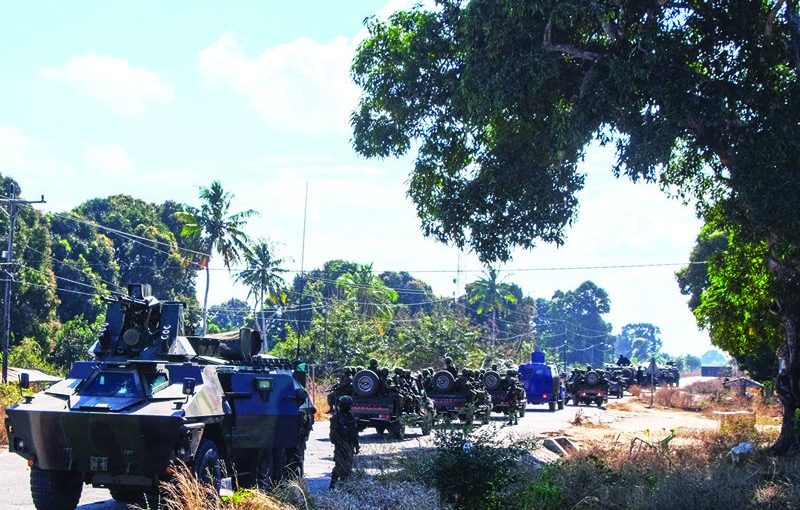
A convoy of armoured vehicles is seen patrolling in Mocimboa da Praia, northern Mozambique, Friday. [Photo: AFP]
In this issue
Cabo Delgado
- Rwandans will create gas security zone
- Next: Targeting forest bases
- Insurgents abandoned Mocimboa
- Damage means no return to Mocimboa
- Tanzania, Lesotho, US
Cabo Delgado reports
- War has cost more $1.2 bn
- A hidden war over resources
- Is the purpose of the war to move everyone out?
- Insurgents’ grievances still fester.
Other news
- JA!’s view on Mpanda Nkuwa & hydrogen
- Redemption, coal, corruption, Israel
- Rwandans will create Total’s security zone
Government has confirmed expectations that the Rwandan army will create the security zone for the TotalEnergies gas project. A map shown at the 9 August ceremony of the launch of the SADC military mission showed the divisions of the operational areas; the Rwandan Defence Force (RDF) will maintain control of Palma and Mocimboa da Praia, the two most important districts for the development of the gas project. (Zitamar 10 Aug)
Speaking at the ceremony, President Filipe Nyusi stressed the importance of the return of circulation between Palma and Mocimboa, which suggests that entire 50 km long zone along the coast will be TotalEnergies security zone.
But Nyusi also said it has become obvious that it will be a “complex challenge” to maintain and consolidate those areas recaptured by the Rwandan soldiers, and this requires “more attention and rigour.” (LUSA 9 Aug)
- Next: Targeting forest bases
Next on the agenda are two related tasks. Army commander Cristovao Chume announced on 10 August the preparation of what he considered to be the “most important mission” to be carried out in the next few days, the assault on the biggest insurgent bases, Mbau and Siri I and II. (Siri means “secret” in Swahili.) Chume said the Mozambican police would take control of Mocimboa to allow government and Rwandan troops to move south. (MediaFax 11, 12 Aug)
Along the Messalo River 35 km south of Mocimboa da Praia is a strip of very dense forest. The map below is from Global Forest Watch. The green shows zones with more than 75% forest cover, which is largely impenetrable and makes aerial surveillance extremely difficult. People being held in those bases talk of needing lights even during the day. Main bases cited by commander Chume are in the forest along the river. A base used to attack Muidumbe district is in the forest to the west of Chinde. Such bases will be hard to find and harder to clear.
The second task is to clear the N380 road. Awasse had been occupied by the insurgents for a year and it took heavy fighting for the Rwandans to capture it on 27 July. And it took the Rwandans a week to fight their way the 40 km from Awasse to Mocimboa da Praia. The N380 runs thought good sniper country, and in places close to dense forest.
MediaFax (12 Aug) reports that 30 military vehicles, said to be carrying South Africa troops, and four helicopters have arrived in Macomia. Chume said two bases were being established, one in Litamanda, just south of the river on the N380, and in Macomia itself, 40 km south. But the bridge over the Messalo River was washed out so the equipment cannot be moved north, and repairs were impossible due to the war. A team from Portuguese construction company Conduril has been sent under military escort to build a temporary dry season bypass.
Foreign troops are also arriving in Quissanga, which had been largely abandoned after its capture by insurgents. Some residents are returning to both Macomia and Quissanga, and rehabilitation is beginning in both towns of infrastructure destroyed by insurgents. (Zitamar 6 Aug)
- Insurgents abandoned Mocimboa
Insurgents abandoned Mocimboa da Praia so it was recaptured on 8 August largely without fighting, according to Rwanda’s Brigadier General Pascal Muhizi. (New Times, Kigali, 9 Aug) There were no major military confrontations, which indicates that there was an early withdrawal of the insurgents, and only a few shots were fired in some peripheral areas, said Army Commander Cristovao Chume in a 10 August interview on TVM. Thus here were no deaths, injuries and captives. That there were no major military confrontations indicates that there was an early withdrawal of the insurgents, taking their weapons with them, and only a few shots were fired in some peripheral areas, Chume said. (Noticias de Defesa, O Pais, MediaFax 11 Aug; Savana 13 Aug)
However the insurgents put up a big fight as Rwandans moved east the 40 km from Awasse toward Mocimboa, delaying the Rwandas by at least a week. The map below, from Jasmine Opperman, shows the battles along the road. CaboLigado (10 Aug) reports that on 2 August, Mozambican interceptor ships were seen leaving Pemba carrying Rwandan and Mozambican troops, which came ashore on the eastern edge of Mocimboa da Praia. There was “a significant battle” with Mozambican helicopters supporting the amphibious assault. Heavy fighting continued on 3 August. On 5 August, Rwanda’s army spokesman, Ronald Rwivanga, estimated they had killed 70 insurgents in all fighting to that date – a relatively small number considering the scale of the fighting.
It seems likely that, in a standard military tactic, insurgents were successfully delaying the Rwandans in order to rapidly evacuate Mocimboa da Praia town. They had captured heavy equipment and many vehicles in Palma and the extra week would have given them time to move their base and all of their equipment into the dense forest to the south. It also seems likely that some insurgents are breaking into small groups or even returning home to await instructions. Others retreated toward Tanzania on motorbikes.
Insurgents did leave in some haste and abandoned some documents and arms. As well as weapons manuals and religious books, there was also a hand-drawn map of the town of Palma. It had clear indication of the bases and advance posts of the Mozambican defence forces, and the precise location of public institutions, hotels, churches and other significant buildings. Mozambican officers believe that this map was used in planning the attack against Palma on 24 March. (AIM 12 Aug)
- Huge damage means no return to Mocimboa
Residents cannot return to Mocimboa da Praia, Cabo Delgado governor Valige Tauabo said during a visit to the town 12 August. Everywhere Tauabo went he witnessed destruction – port, airport terminal, district hospital, secondary school, mobile phone company TMcel – all had been reduced to ashes or tangled metal. Tauabo said that, under current circumstances it is impossible to provide medical care, and there are no schools for the children. Furthermore, security is not yet fully guaranteed. Residents will only be allowed to return when essential public services are functioning. (O Pais 13 Aug)
State-owned airport operator Aeroportos de Mocambique (ADM) says that it has no estimate of when it can restart operations at Mocimboa da Praia airfield. Much of the equipment has been destroyed or damaged, but light aircraft are able to land. Initially it will be repaired to the extent that it can be used by military aircraft. However, it will later be a crucial logistics hub for the development of the gas projects. The airstrip length is 2000 meters. During the colonial period Boeing 737 planes used to land there. (Carta de Mocambique 10 Aug)
Residents of Quituda are relieved at arrival of Rwandans because when the Mozambican Defence and Security Forces took over, they were often seen as predators of those who had lost everything. Mozambican troops constantly took away people’s possessions, which always created an atmosphere of tension. “Here in Quitunda we are well in the presence of the Rwandans. Some of the FDS [Mozambican] soldiers tried to seize the population’s goods, but when we alerted the Rwandans, they intervened and we were safe. The Rwandans are bringing peace” – said one resident. (MediaFax 13 Aug)
Tanzanian forces have stepped up domestic operations near the Mozambican border. CaboLigado (10 Aug) reports that “every village within 40 km of Mtwara town has established village checkpoints within the last two weeks to check identity papers, and security force patrols in the area are checking the papers of everyone they come across. On 3 August, Tanzanian police announced that they had undertaken operations in Kibiti district with the explicit goal of interdicting insurgents who had been pushed back into Tanzania by Mozambican-Rwandan operations in Cabo Delgado. The next day, the chief of Tanzanian police told reporters that his officers are questioning anyone coming across the border from Mozambique to ensure that they are not involved in the insurgency.”
Lesotho has become the latest nation to contribute troops to the SADC mission. On 8 August a Lesotho Defence Force (LDF) advance team of 12 soldiers arrived. LDF Public Affairs Officer Captain Sakeng Lekola said it will be followed by another 113 LDF members, who will be transported by an Angolan aircraft.
The US on 9 August began is second military training programme. US Special Forces will train more than 100 Mozambican commandos and rangers to improve capabilities on the battlefield. The U.S. Department of Defense training exercise “will strengthen the growing relations between the United States of America and the Republic of Mozambique,” the US embassy said. “This training program doubled in size in just four months, proof that the United States is committed to capacity building within Mozambique’s armed forces,” said Ambassador Dennis W. Hearne. Comment: The success of US military training is shown in Afghanistan, where the training continued for two decades.
118,534 people have been displaced from Palma, Relief Web reported on 29 July. IDPs continue to arrive in Nangade on foot and by bus from Nangade to Mueda, Montepuez, and Pemba.
Cabo Delgado reports and studies
The war in Cabo Delgado has cost more $1.2 bn so far. Official security and defence spending has jumped three-fold since 2015. And at least $150 mn has been spent on private military companies, concludes CIP, the Public Integrity Centre. The report in English is HERE. CIP warns “There is a lack of accountability for military spending in general and with the war in Cabo Delgado in particular. The Assembly of the Republic (AR, Parliament) is the central body that must externally control military spending, but it has been weak in exercising that role.”
The paper by João Feijó giving details of four insurgent leaders, cited in the previous issue of this newsletter, has been posted, in English and Portuguese, HERE. This ground-breaking paper is published by OMR (Observatory of Rural Areas, Observatório do Meio Rural).
The fight for Cabo Delgado: A hidden war over Mozambique’s natural resources, by Neha Wadekar with Ed Ram and Estacio Valoi, Telegraph (London) 21 July 2021. The report argues that the war is driven by an elite controlling natural resources – rubies, gold, timber and now gas – and pushing out artisanal miners and other young people who join the insurgents. But the article raises another issue. A woman who had been captured by the insurgents and later escaped said the insurgents told them “the purpose of this war is to move everyone out of here because it’s going to be built up, and we are going to work with the white people who are building here. This place will become beautiful, and all of you will live somewhere else”. Comment: It is not just the insurgents. It is clearly government policy to clear the land and to stop internally displaced people (IDPs) from returning to their former homes. In April 2020 there were 172,000 people displaced by the war and this has jumped to 732,000. Cabo Delgado has “one of the world’s fastest-growing displacement crises,” said the UN agency OCHA on 21 June. Whether it is intentional or not, This creates vast tracts of land, particularly in Macomia district, with virtually no people and thus open for foreign mining and agricultural investment. The intentional clearing of population in the Palma-Mocimboa da Praia corridor also makes it much easier to create a security zone for Total.
IDPs fear not being able to return to their homes, DW 13 Aug. Muaziza Yahaya, displaced from Mocimboa da Praia and sheltering in Nampula, told DW: “We are afraid of losing our lands. Today they may be saying that they are driving out evildoers, but tomorrow we will lose our lands. We know that our lands have a lot of wealth, so we want the government to alert us [to return] after the fight is over.” JoJo Ernesto, analyst and general coordinator of Associacao Mentes Resilentes, a Mozambican civil society organization, told DW: “We are now seeing a rush to resettle [displaced] people, as if these people were not going to return to their areas of origin. It is as if they are saying that they will settle here permanently. So, it is a concern, because on the side of the government not even a voice has been raised to say that we want to chase away the terrorists to give back the region to its owners, who are the local population.”
Why Mozambique invited foreign troops to fight its jihadists: Rwandan soldiers are rescuing a huge gas project. But the insurgents’ grievances still fester. Economist 14 Aug. “The way the offensive has unfolded indicates that Mr Nyusi’s priority is to resuscitate the LNG project,” notes the Economist. “The danger is that a narrow focus on the gas project does not address the root causes of the conflict. So long as the people of Cabo Delgado see few benefits from the development of local natural resources, and see a state unable to provide health care, education, jobs and security, grievances will fester.”
Mozambique: Civilians Prevented from Fleeing Fighting, Human Rights Watch (6 Aug) “Many civilians have sought refuge in Quitunda village, about 5 km from the town of Palma, where they lack water, food, and other basic services. People who managed to escape Quitunda said that government soldiers prohibited people from leaving the village, and physically assaulted those caught trying to flee. Thousands of Palma residents who managed to reach Pemba travelled by foot, walking several days in the bush. Others went by boat, spending days at sea without food or water, while others took government rescue planes, in some cases only after paying bribes to soldiers to secure seats.”
People who fled Quitunda and Palma for Pemba in May and June said that government soldiers had tightly restricted movement. These soldiers also beat and mistreated some people trying to flee. “Soldiers didn’t allow us to leave Quitunda, but there is nothing there, no food, no medicine, and the water is dirty,” a 28-year-old man told HRW.
HRW adds that insecurity and government restrictions hinder the access of humanitarian groups operating in Cabo Delgado province. A senior official from Medecins Sans Frontieres (MSF), who visited the region, reported that bureaucratic hurdles impeded aid delivery. A World Food Programme (WFP) spokesperson said on July 1 that it had suspended food distribution to Palma district in March.
And in a summary on the war, HRW says “Analysts in Mozambique and abroad assert that while religion plays an important role in indoctrination, mobilization, and recruitment of Ansar al-Sunna militants, the region’s widespread social, economic, and political problems are major drivers of the violence”
Rwanda’s Paul Kagame – visionary or tyrant?, BBC 3 August 2017 (four years ago)
Other reports
Response to Joseph Hanlon’s “Mphanda Nkuwa & hydrogen, special report” by Justica Ambiental JA! An important alternative view, worth reading, setting out the case against all new dams and also against hydrogen as an alternative fuel. The JA! response, in English with links to background studies, is on https://bit.ly/JA-MK-jh and my original report is on https://bit.ly/Moz-555. JA! is Friends of the Earth Mozambique.
Warning of government press crackdown by MISA (Media Institute of Southern Africa) Mocambique, 10 August, on the 30th anniversary of “the Press Law [which] allowed the emergence of pluralism and diversity, with the birth of private sector media, complementing the public sector.” But MISA warns government is trying to withdraw many press freedoms, through a new Media Regulatory Authority, taking control away from journalists over media professionalism, criminalisation of journalists, and “the unnecessary limitation on the number of foreign media correspondents.”
Other news
Truck drivers threaten strike over police corruption. The Association of Truck Drivers of the Southern African Development Community (SADC) made the threat in a letter to the Sofala Provincial Office for the Fight against Corruption. The Association claims that on the roads from Beira to Zimbabwe and to Tete police have set up control points where, in order to continue their journeys, the drivers must pay up to $1.50 to pass. At a press conference in Beira, the spokesperson for the Sofala anti-corruption office, Anastacio Matsinhe admitted that such misconduct does occur and must be stopped. (AIM 12 Aug)
Mozambique has protested against the African Union decision to grant Israel observer status. The chair of the AU Commission, Moussa Faki Mahamat, accepted the credentials of Israeli diplomat Aleli Admasu on 22 July, allowing him to become an observer at the AU. The Mozambican embassy in Addis Ababa protested at Mahamat’s decision, and said explicitly it was speaking for the Mozambique government. It said that such a sensitive matter demanded consultation with all the AU member states, rather than a unilateral decision by the Commission. The statement from the embassy said that the circumstances which led to the loss of observer status in 2002 “remain unaltered, namely the occupation of Palestine and the systematic violation of the human rights of the Palestinian people by the State of Israel, which contradict the constitutive principles of the African Union Charter”. (Carta de Mocambique 12 Aug)
Brazilian miner Vale is accused of abandoning sick coal mine workers, refusing to help workers who have become ill after inhaling coal dust at its Moatize coal mine and manipulating medical examinations to avoid liability. (DW 10 Aug)
National Director of Human Rights jailed but not dismissed. Claudio Mate was jailed for six months for domestic violence, and jail for that kind of crime cannot be converted into a fine. But he retains his position as National Director of Human Rights and Citizenship in the Ministry of Justice, and Justice Minister Helena Kida has not dismissed him. (Carta de Mocambique 9 Aug) Kida is also under pressure for not dealing with the Maputo women’s prison sexual abuse scandal.
Clearly the Minister believes in redemption (or the importance of first hand experience). The new head of the Maputo women’s prison was once an inmate there. Herminia Nhamundze was put into the post on 5 August, after the previous head was sacked for allowed a prostitution ring there (exposed by CIP investigative journalism). Nhamundze was in the prison after she and 16 other prison officials were arrested in 2019 for helping the 2014 escape of Nini Satar, who murdered journalist Carlos Cardoso. Also detained in that case is Ramos Zambuco, the new director of the maximum security prison (known as the B.O.) The case has never gone to trial, and those detained always claimed that their arrest was a plot by those who were really guilty of facilitating the escape. (Carta de Mocambique 11 Aug)
By Joseph Hanlon


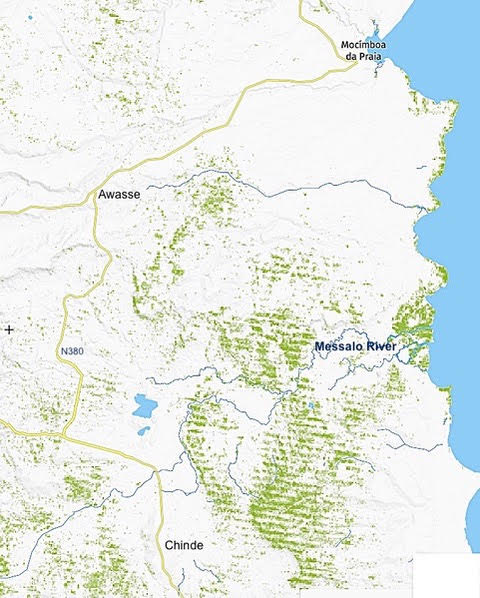
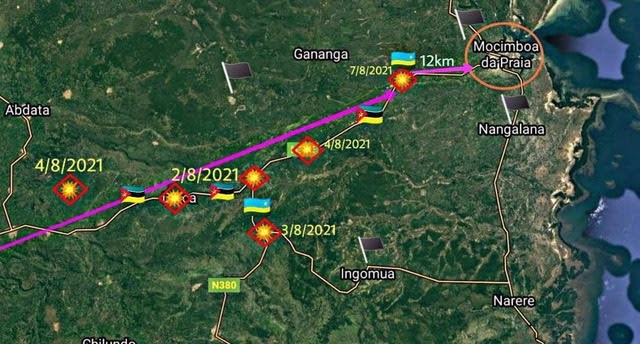
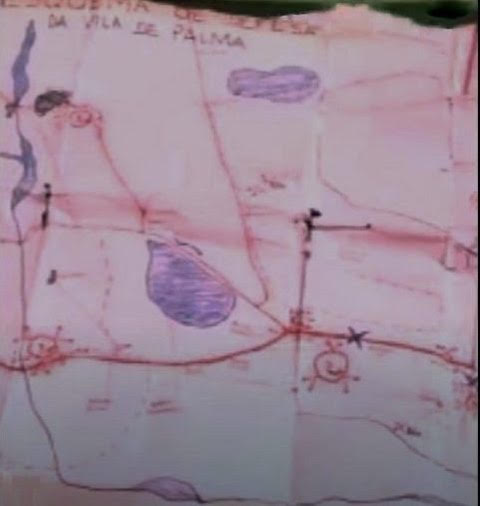

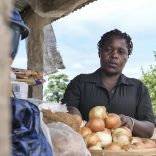
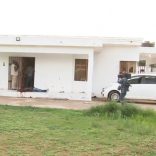
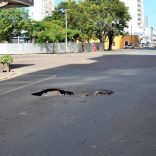
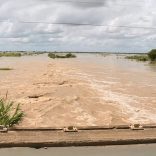

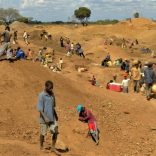
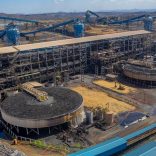

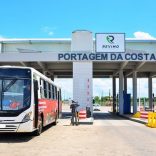
Leave a Reply
Be the First to Comment!
You must be logged in to post a comment.
You must be logged in to post a comment.